The wish for a nuclear bomb seems to work against Iranian interests—so why would Iran expose itself to international wrath by pursuing its nuclear program?
On October 13, 2011, a French newspaper, Le Figaro, alleged that Iran was preparing a nuclear bomb. The International Atomic Energy Agency (IAEA) claimed that it had irrefutable proof of this and presented the evidence in its November report. Such information was all the more frightening because since the 1979 Revolution, Iran has been accused of agitating Shiite communities in the Middle East and of instigating murders and terrorist attacks in several countries. A recent key accusation was made amid the alleged Iranian assassination attempt on the Saudi Arabian ambassador in Washington DC.
Iran appears as the most threatening country on the international scene because it can use its potential (or probable) nuclear bomb against its adversaries, for example the US and its allies—especially Israel, and the Arab Gulf monarchies. The IAEA’s presumptions about an Iranian bomb and the added provocations of Supreme Guide Ali Khamenei have increased tensions over the Iranian case. It has now come to the question of a military attack against Iran’s nuclear installations in order to avoid the potential misuse of such a lethal weapon.
However, the Iranian point of view is slightly different in comparison to what is perceived by the US and many Western countries. When Iran’s leaders appear threatening in their speeches, it is likely for defensive purposes. Iran thinks it is the victim of unfair “Iranophobia” and it does not want to be a target, especially that of the US, a country perceived as one of the biggest threats to Iran. Understanding Iran’s point of view and its behavior is essential for adapting diplomatic answers accordingly.
The History
In contemporary times, Iran has had a frustrating and humiliating experience of foreign interference, especially by the West. The British grab on oil resources with the d’Arcy concession in 1901, the British challenge to Iranian sovereignty with the Anglo-Persian treaty in 1919, the occupation of Iran by allied troops after World War II and the coup d’état against Mohammed Mossadegh in 1953, are some examples of this inequitable interference. Such bad experiences have made Iranians feel that they are despoiled of their sovereignty and resources and are becoming hostage to Western cynicism and interests.
The fact that the US and its allies supported the advent of Ayatollah Khomeini does not speak much in their favor. It is acknowledged that Western help is double-edged and aimed at occupying a strategic territory at the crossroads of Asia, Europe, and the Middle East and seizing Iranian oil and gas resources.
Iran is attached to its independence, whether political, economic, or cultural. To Iranians, the West’s appetite for hydrocarbons and a military presence in the Middle East—especially since 9/11—is a risk that cannot be ignored.
The US Presence in the Middle East
Given the number of US military bases in the region, Iran is right to worry: its worst enemy circles its territory. On the one hand, the US is allied with Gulf Sunni monarchies and Pakistan and unsurprisingly, the South and East banks of the Persian Gulf count several US military bases. On the other hand, wars in Afghanistan and in Iraq paved the way for increased US military presence in countries that border the west and the east of Iran.
The US has tightened its grip on Iran since 2001. Iran feels more and more trapped even though the US fought against the Taliban and helped topple Iran’s old enemy Saddam Hussein. The US and its Western allies appear as an anomaly in a region where Islam is the prevalent religion. Furthermore, their presence prevents Muslim people from enjoying self-determination, preventing any potential Islamic uprising that could challenge American hegemony. The nuclear bomb, or even the presumption of acquiring it, is a way of making Iranian territory a sanctuary and of dispelling the specter of a war led by Western powers.
Because of the West’s failure to prevent North Korea and Pakistan from developing nuclear weapons, Iran does not believe that Western countries are willing to act in order to prevent the completion of a dangerous nuclear program. However, Iran does believe that the intentions of the US and its allies are to occupy Iran, violate its self-determination, seize its resources, and make it submit to their rule.
The American Spoilsport
The US’ military presence and its diplomatic ties with Sunnite countries, especially the wealthy Gulf monarchies, preempt the hegemonic dreams of the Islamic Republic of Iran. Iran considers the Islamic revolution an example that could inspire other Muslim countries and allow Iran to impose its religious hegemony in the region. On October 17, 2011, while visiting Paveh, Khamenei declared that the admiration that countries in the region have for Iran represented an opportunity to increase Iranian influence in the Muslim world.
Even if potential Shiite hegemony is not to the taste of regional Sunnite powers, Iran accuses the US of undermining its projects and of dividing Muslims in order to better impose its authority on Muslim communities.
Officially, the US is considered the thorn in Iran’s side, the enemy of Islam and the incarnation of the great Satan; an enemy that is responsible for every misfortune of humanity and particularly of Muslims. Iran claims to be the great champion of anti-Americanism and hopes this will please the Arab street which mostly stands against American hegemony in the region. The US is the perfect scapegoat because it is considered responsible for every misfortune in Iran and in the Middle East.
Developing the nuclear bomb would represent not only a way of challenging this hegemony but also an opportunity for Iran to establish its leadership in the region.
Is the Nuclear Bomb Coercive?
The nuclear bomb appears as a solution to dissuade attack—but is coercion the sole purpose of Iranian authorities?
It seems that “imperialist America” and “Zionist” exactions in Gaza are the favorite subjects of interest in Iran. Almost every speech Khamenei or President Mahmoud Ahmadinejad give refers to the danger of the US and its Israeli ally. Given such obsession, the purpose of the nuclear bomb seems to be intended for attacking American interests and erasing Israel from the map. However, is this a realistic option for Iran?
Iran has shown in the past that it is capable of exercising its nuisance power. For instance, it has been funding Hezbollah from its creation, in order to bolster an indirect opposition force against Israel. However, despite its several ignominious statements, notably at the last UN General Assembly meeting, Iran has never dared to attack Israel directly. Given such circumstances, it appears probable that the nuclear bomb would give Iran the confidence necessary to lead direct attacks.
Iranian leaders are conscious that this would be a risky initiative. As a matter of fact, Israel is suspected of already being a nuclear power and more technologically advanced. Moreover, the US would not allow such a thing and would retaliate immediately. Last but not least, neighboring countries, especially Arab Sunni monarchies, would fully support Western military action. Attacking Israel is therefore suicidal because it would isolate Iran in the region.
Nevertheless, every two or three months, Israel raises the specter of a military attack in order to pressure Iranian authorities. When Israel feels threatened by Iran, Iran also feels threatened by Israel and trains its military forces for war. On November 3, the media reported that Binyamin Netanyahu was deliberately trying to convince his ministers to accept military action against Iran.
Such action would make Iran appear victim to a Zionist appetite and would portray Israel as being willing to set alight the entire region in order to start a crusade against Muslims on the pretext that after Iran, Israel would attack and enslave other Muslim countries with the help of the US. Iranian leaders would rather provoke Israel with insulting statements, than start hostilities. It would better serve their interests because Israel has to appear as the aggressor and Iran needs to appear as the next victim after the Palestinians.
Nuclear Bomb Over Diplomatic Action
As Iranian authorities fiercely advocate the principle of velayat-e-faqih (supreme leadership of the Islamic state)it seems that they did not find diplomacy in their religious texts. Indeed, it is easy to make fierce speeches at the UN and appoint the US and its allies responsible for all the problems in Iran. However, it is more difficult to adopt diplomatic and cooperative behavior when communicating with countries that do not share the same points of view.
Iran is fully aware that its nuclear strategy is worrisome to its adversaries, especially because it does not refrain from expressing its warlike views—particularly against Israel. Moreover it resorts to terrorist acts and supports terrorist groups like Hamas and Hezbollah instead of privileging diplomatic action.
Iran is talented at agitating and using indirect attack, but this might be so because Iran does not have the ability to face well-prepared diplomats in international institutions. As a matter of fact, in order to hold high diplomatic positions in Iran, there is no need to have strong academic or professional skills. Basic knowledge of religious principles and loyalty to the regime’s line are the core prerequisites. Diplomatic abilities, qualities that would be appreciated on the international scene, are not a priority in Iran because religion prevails in all matters. Additionally, diplomats have little room for negotiations because they have to follow strictly the line imposed by Khamenei.
Iran is unable to express its worries about the American military presence and American imperialism on the international scene. It is incapable of starting constructive dialogue with Sunni countries in order to appear as a potentially reliable partner rather than a major threat. Lastly, it is unable to stand for a Palestinian cause without calling for hatred against Israel.
Iranian leaders live in a Manichaean world that leaves little space for compromise, constructive dialogue, or negotiation. Posing as the victim of an American and Zionist plot draws Iranian media away from the main problems of: galloping inflation, economic difficulties, and the lack of basic freedoms.
Stubborn Iran is not only a pariah among respectable nations but is also working against its own interests. Sanctions are exasperating the Iranian people, who are expecting even tougher times. Future IAEA reports may further increase the burden of economic sanctions and make the life of Iranian people even more difficult. In the meantime, Iranian authorities are trying to make the public think that Iran is a great nation because everybody fears it.
Read the counterpoint to this article here.
The views expressed in this article are the author's own and do not necessarily reflect Fair Observer’s editorial policy.
Support Fair Observer
We rely on your support for our independence, diversity and quality.
For more than 10 years, Fair Observer has been free, fair and independent. No billionaire owns us, no advertisers control us. We are a reader-supported nonprofit. Unlike many other publications, we keep our content free for readers regardless of where they live or whether they can afford to pay. We have no paywalls and no ads.
In the post-truth era of fake news, echo chambers and filter bubbles, we publish a plurality of perspectives from around the world. Anyone can publish with us, but everyone goes through a rigorous editorial process. So, you get fact-checked, well-reasoned content instead of noise.
We publish 2,500+ voices from 90+ countries. We also conduct education and training programs
on subjects ranging from digital media and journalism to writing and critical thinking. This
doesn’t come cheap. Servers, editors, trainers and web developers cost
money.
Please consider supporting us on a regular basis as a recurring donor or a
sustaining member.
Will you support FO’s journalism?
We rely on your support for our independence, diversity and quality.



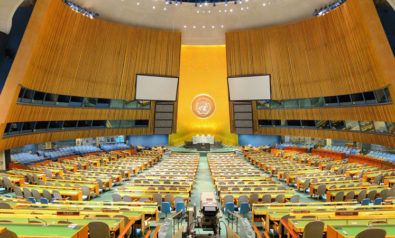



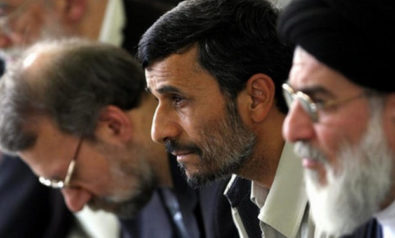

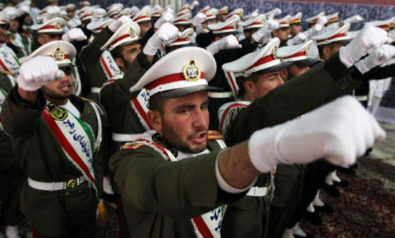



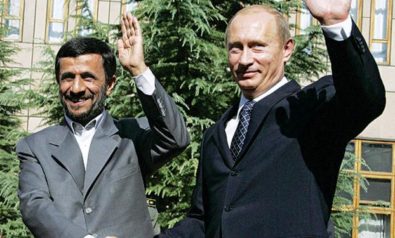


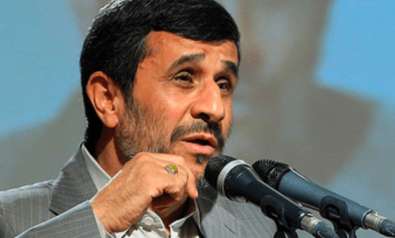


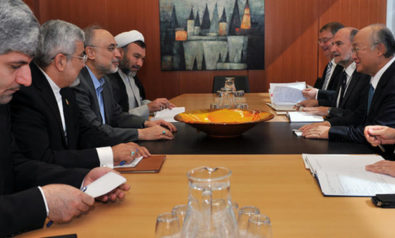

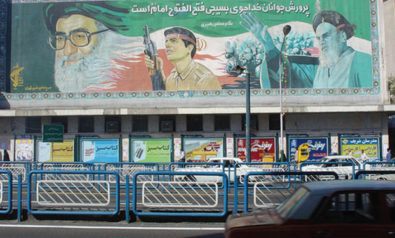

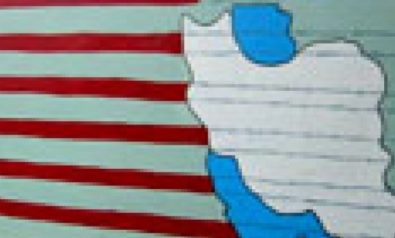

Comment